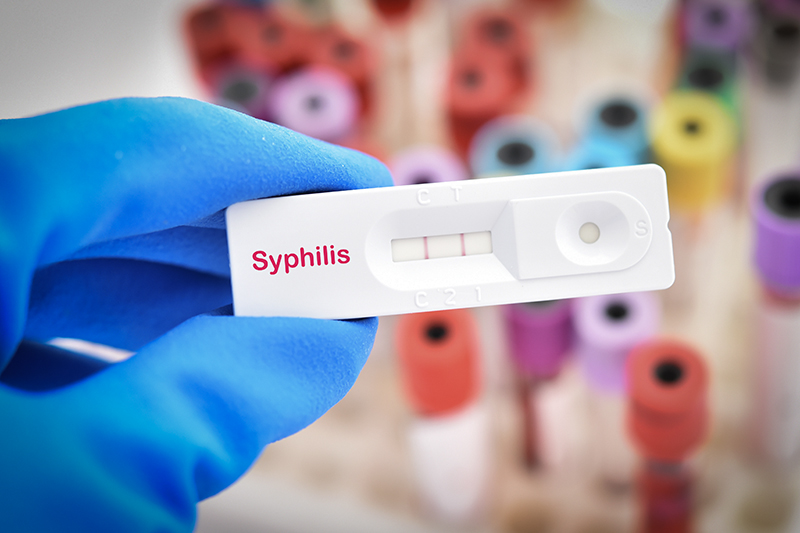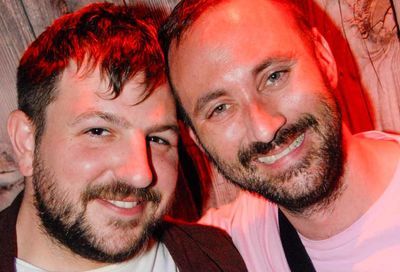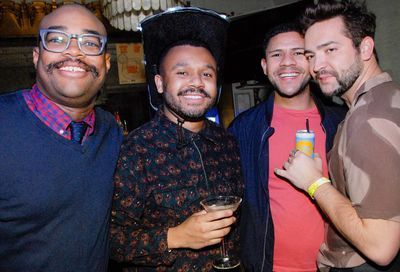Doctor, Doctor
How Coming Out Can Affect Your Healthcare
Take Charge of Your Health by Talking to Your Doctor
Among the uncomfortable experiences that are part and parcel of life is that first visit to a new doctor. There you sit in a chilly examination room on a paper-covered table waiting to tell a stranger about problems you may be having with your health. Problems that may involve something you consider extremely personal.
Gay, lesbian, bisexual and transgender people all have issues unique to their lives that can shape both the health issues they face and the type of health care they receive. Being able to talk openly with a primary care physician or any other medical-service provider is an important aspect of healthcare that can at times be difficult, even for people who may consider themselves out in most other parts of their lives.
While studies on the experiences of coming out to doctors are limited, groups that provide health and support services to the GLBT community say that it can be difficult for many people simply because of the fear they may have about the consequences.
“It’s a vulnerable position,” says D. Magrini, coordinator of health education for the Lesbian Services Program of Whitman-Walker Clinic. “You’re in a room in something resembling a paper gown. The doctor is dressed and you’re not — it’s hard to talk about difficult subjects in that position.”
Not feeling free to discuss your sexual orientation and sexual activity can have a real impact on your health, whether it results in a feeling of mistrust or in a doctor missing a diagnosis because she doesn’t have all the relevant information about a patient.
Magrini says assumptions about women and their behaviors can present themselves early in a visit.
“I’ve found that one of the first questions that any woman is asked is, ‘What kind of birth control are you on?'” she says. “That’s already going to set me on edge.”
Those sorts of assumptions set the stage for what is considered “normal” in that situation, and can make it hard for a lesbian to get past that discomfort and talk about what issues may be happening with their own health and behaviors.
Magrini has provided many cultural competency trainings for medical providers to help them be “better able to respond in a sensitive manner and include the chosen family of a person in their treatment and care.” She stresses that while some health risks may be higher for some lesbians — there has been some indication, for example, that lesbians may be at increased risk for breast cancer — those risks are also associated with some heterosexual women, including those who choose to have children later in life. The issues are more about establishing an environment where you can communicate effectively with your doctor.
Cheryl Pearson-Fields, deputy director of the Mautner Project for Lesbians with Cancer, has also worked to improve communication between lesbians and their healthcare providers through the “Removing the Barriers” program, which trains providers on how to provide culturally competent care to lesbians.
She also says that available research shows that lesbians who are out to their doctors reap a number of benefits.
“They are more adherent to screening recommendations and are more satisfied with their health care encounters,” she says. “It facilitates better communication with physicians, makes them feel more comfortable, because they don’t have to hide part of their lives.”
Pearson-Fields also notes that the open communication benefits “both sides of the equation.”
“Providers are able to make recommendations and communicate from a position of knowledge. They know risk factors and aspects of a patient’s life because their patient is comfortable talking about their real risk factors.”
Gay men share many of the same concerns about coming out to their doctor, and can also share many of the same benefits.
“One of the most important [benefits] is screening and preventive measures for STDs [sexually transmitted diseases],” says Dr. Philippe Chiliade, medical director of Whitman-Walker Clinic. He particularly cites the available vaccinations for hepatitis A and B, which sexually active gay men are at high-risk of contracting and which can have devastating health consequences. A gay man who can discuss his sexual activity openly with his doctor will be much more likely to receive a recommendation for those vaccinations.
Understanding the sexual health issues of gay men and having knowledge of a patient’s sexual activity can positively impact a patient’s health and treatment, Chiliade says. For example, a physician who does not know that his patient is gay may not see the signs of oral or rectal gonorrhea, which can be transmitted through receptive oral and anal sex.
But even though the benefits can be so significant, some gay men still have problems coming out to their doctors or, if they’re out, discussing specific aspects of their sexual lives that may be relevant to their healthcare.
“It’s fear of being judged by their provider,” says Chiliade. “It’s still socially difficult.”
Communication can also be impaired by how a doctor reacts to the information a gay patient gives, he says. If a patient perceives that the “provider was uncomfortable, it would be difficult for someone to come back and talk clearly about their sexual orientation.”
The ways in which healthcare providers use language is one of the most significant barriers for transgender persons accessing healthcare, says Earline Budd, executive director of Transgender Health Empowerment.
“It’s the sensitivity in terms of language and pronouns,” she says. For example, a woman indicates on initial forms that her biological gender is male, although she identifies and passes as female, and then a nurse or provider insists on referring to her as “sir.”
“What they ultimately do is get up and leave,” says Budd. “That stigma and insensitivity is the biggest barrier to health care.”
Budd’s group has found, through focus groups and other work, that transgender persons with access to healthcare don’t necessarily have a problem finding a provider, but often have problems with insensitivity with the provider they do have.
|
“Most providers are open to having training on transgender issues,” she says. “They’re calling and asking ‘Can you help us understand and provide services?'”
Budd cautions that there is no quick fix for these sorts of problems, because some people’s beliefs won’t allow them to come around and provide services sensitive to transgender needs.
“But we are better off today than we were years ago,” she says. “We’ve made some big steps, but we still have a ways to go.”
One of the biggest advantages for GLBT people living in the Washington area is the large number of gay and gay-friendly physicians and healthcare providers working in D.C. and the surrounding suburbs.
“There are a lot of providers who are gay friendly and gay themselves,” says Chiliade, who notes that you don’t necessarily need to find a gay provider, but one who is comfortable dealing with GLBT issues.
If you’re new to the area, or new to the process of finding a personal physician, there a number of steps you can take to find a doctor who can address your health issues competently and sensitively.
“Talk to people and friends,” says Pearson-Fields. “Find out who has had previous experience coming out to a provider. Look for clues in a doctor’s office.”
Depending on the experiences of friends and acquaintances is a good way to find providers. “One of the best things folks can do is go to their social network and ask,” says Magrini.
Many providers also advertise in community publications and resources. Mautner Project and Whitman-Walker both provide referral lists for people interested in finding a provider, and they both want to hear about positive experiences GLBT people have with providers.
“If you know of any good docs, let us know,” says Magrini.
Finally, what do you do if you realize that your doctor is not comfortable with GLBT health issues or is in some way biased against gays and lesbians?
“People have to remain safe,” says Pearson-Fields. “Sitting naked in a doctor’s office is a vulnerable experience. If you feel it’s not going to be a positive encounter, don’t come out if you don’t have options.”
She cautions that a patient should assess the situation and act accordingly. “I don’t think anyone will say that patients should always come out to their provider no matter what,” she says, although it’s definitely a good idea. Chiliade says that if you realize your doctor isn’t comfortable dealing with these issues, you should take advantage of the breadth of doctors available in the area and switch providers.
“They won’t receive the best care if they’re not being treated well,” he says.
Remember, it’s your health that’s the primary concern.
“It’s like any consumer issue,” says Magrini. “The doctor is being paid for services. People will take their cars to folks that treat them better than their doctor treats them. Don’t subject yourself to treatment that’s not to your liking.”
Support Metro Weekly’s Journalism
These are challenging times for news organizations. And yet it’s crucial we stay active and provide vital resources and information to both our local readers and the world. So won’t you please take a moment and consider supporting Metro Weekly with a membership? For as little as $5 a month, you can help ensure Metro Weekly magazine and MetroWeekly.com remain free, viable resources as we provide the best, most diverse, culturally-resonant LGBTQ coverage in both the D.C. region and around the world. Memberships come with exclusive perks and discounts, your own personal digital delivery of each week’s magazine (and an archive), access to our Member's Lounge when it launches this fall, and exclusive members-only items like Metro Weekly Membership Mugs and Tote Bags! Check out all our membership levels here and please join us today!


















